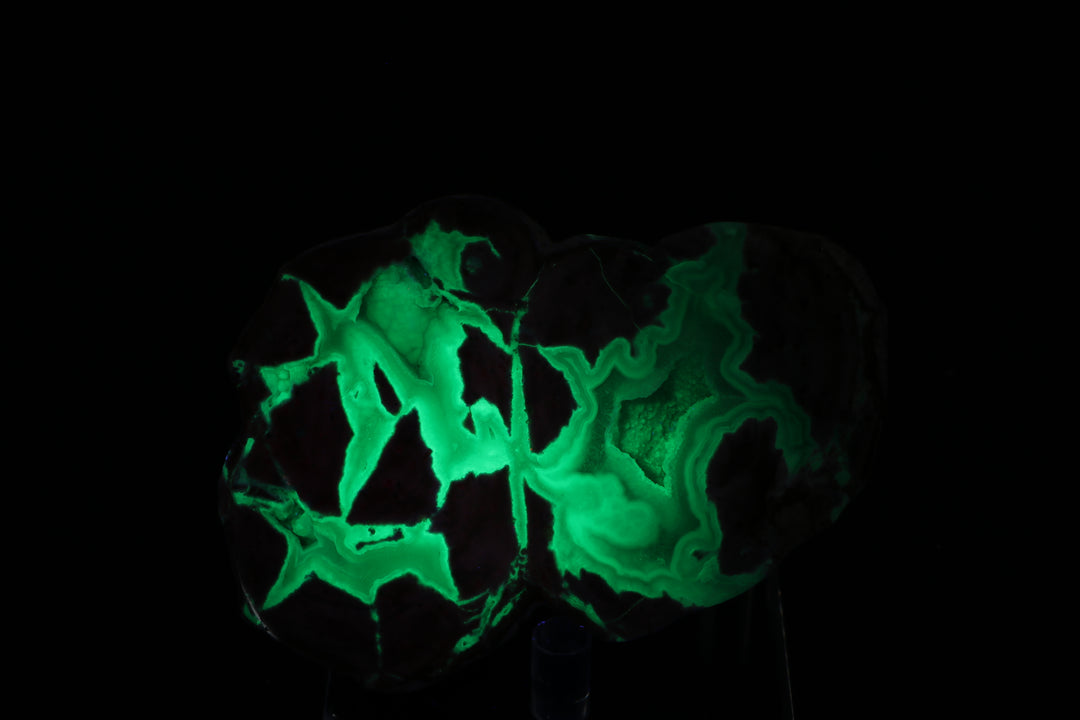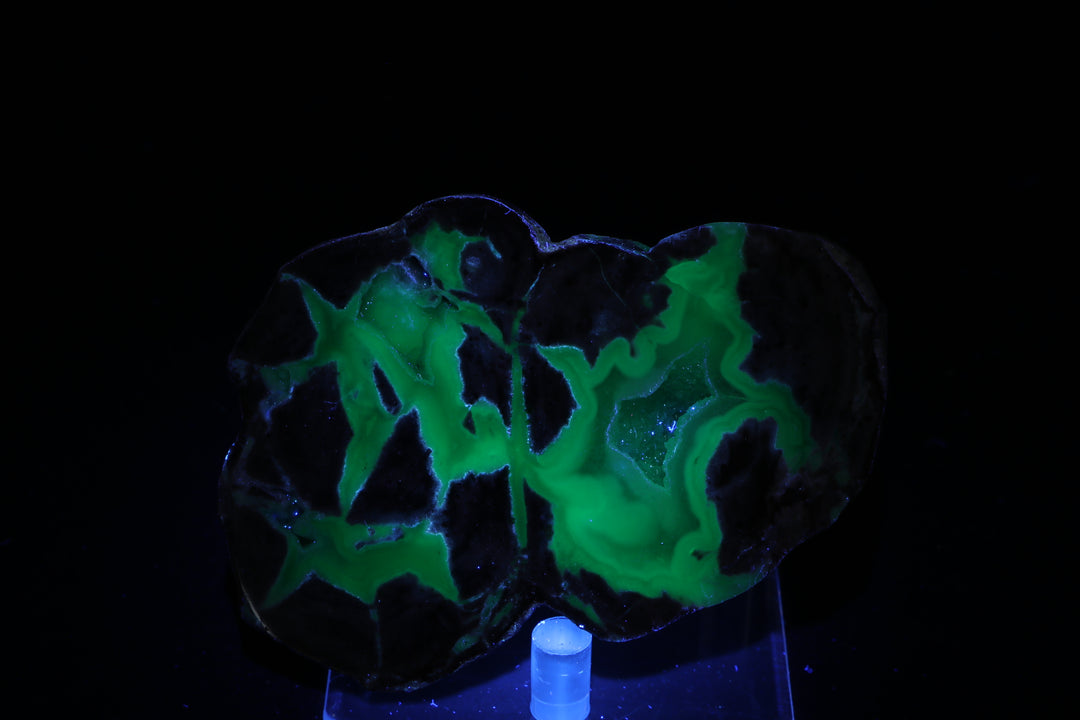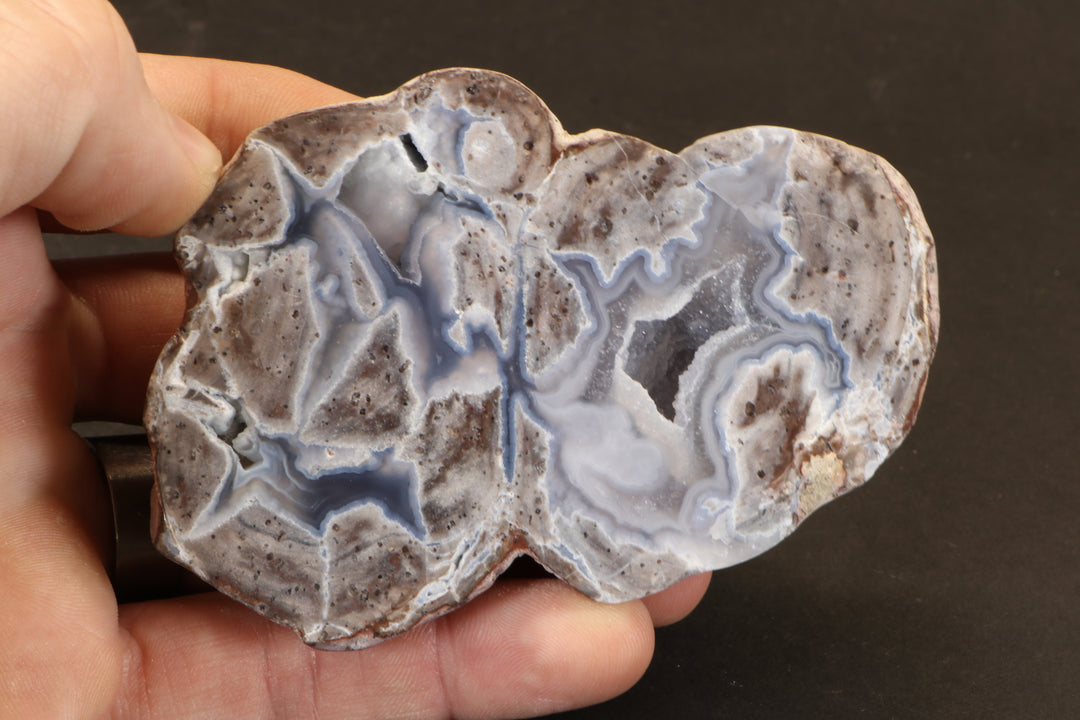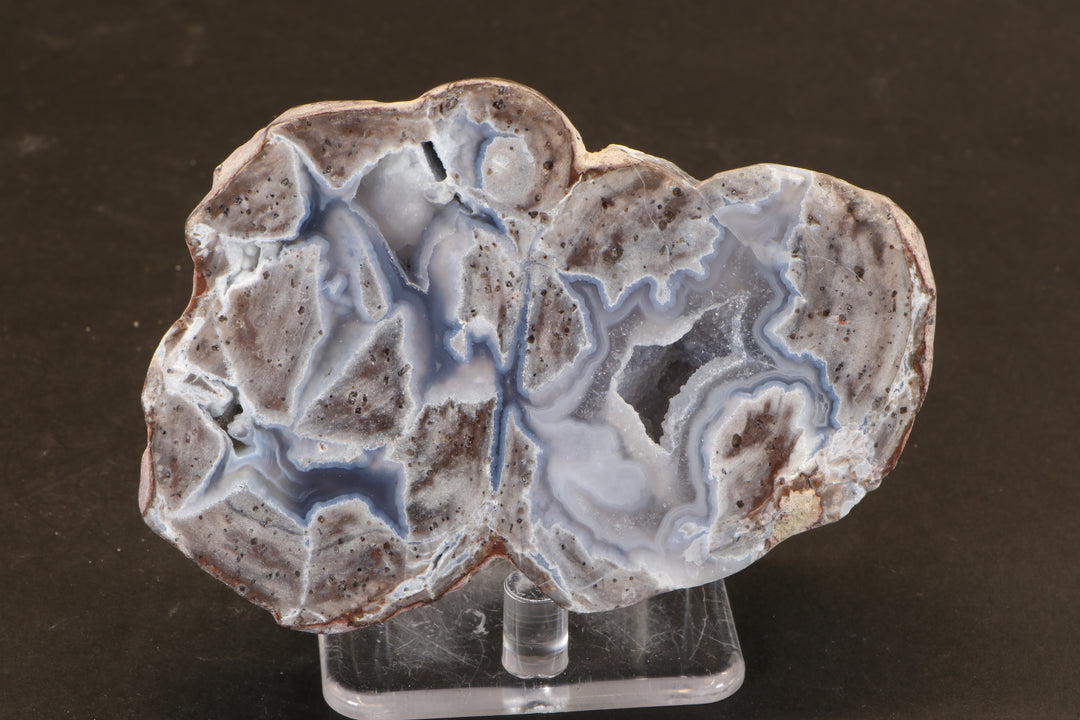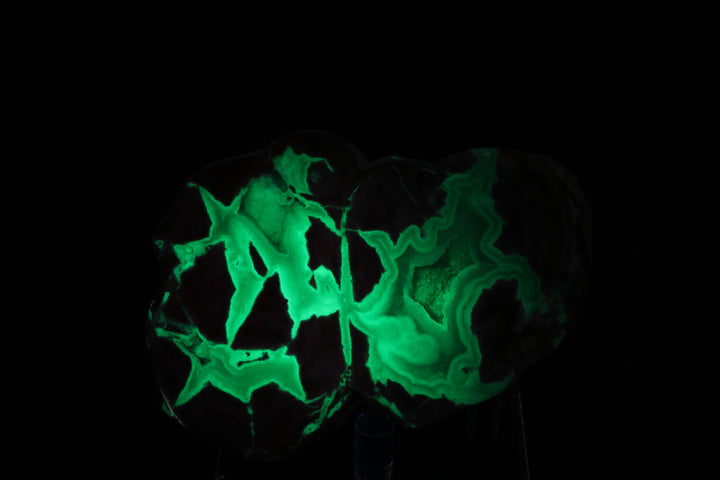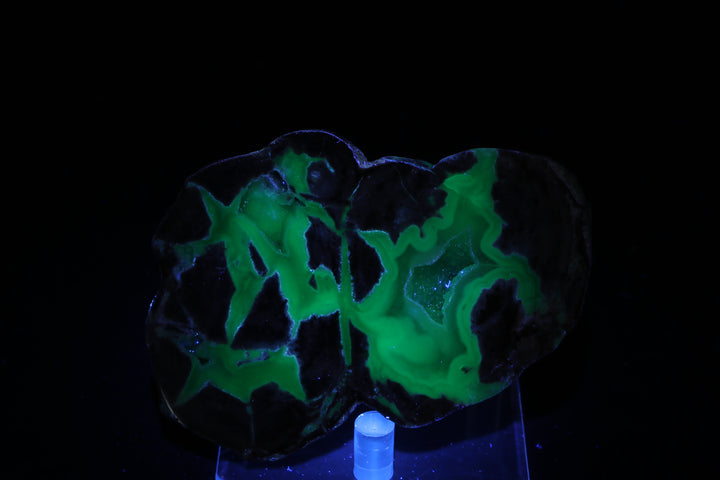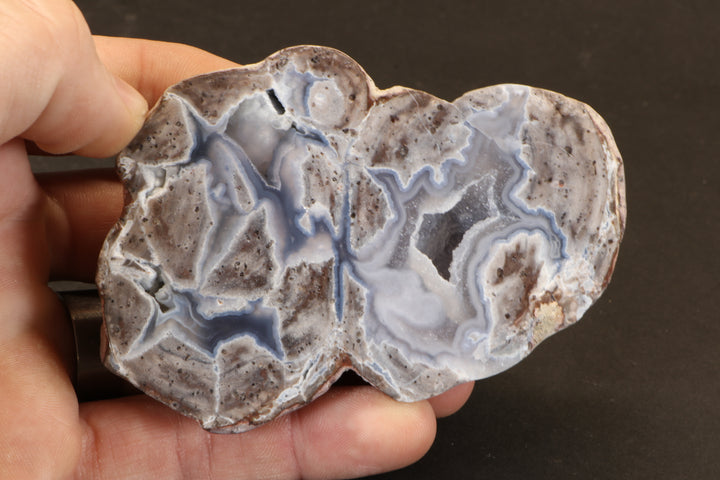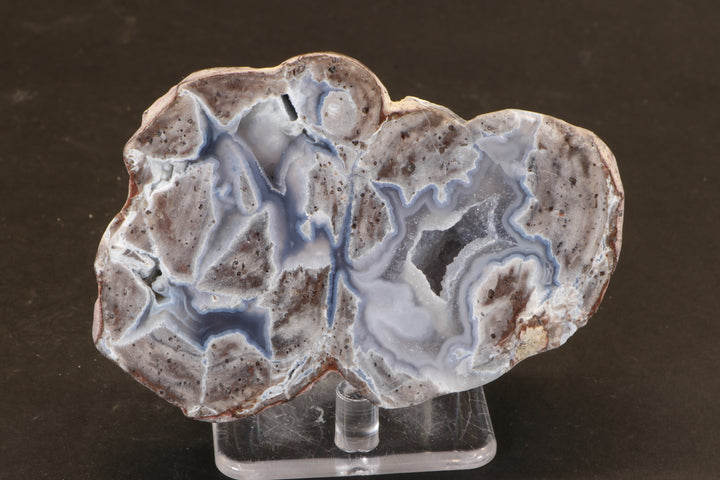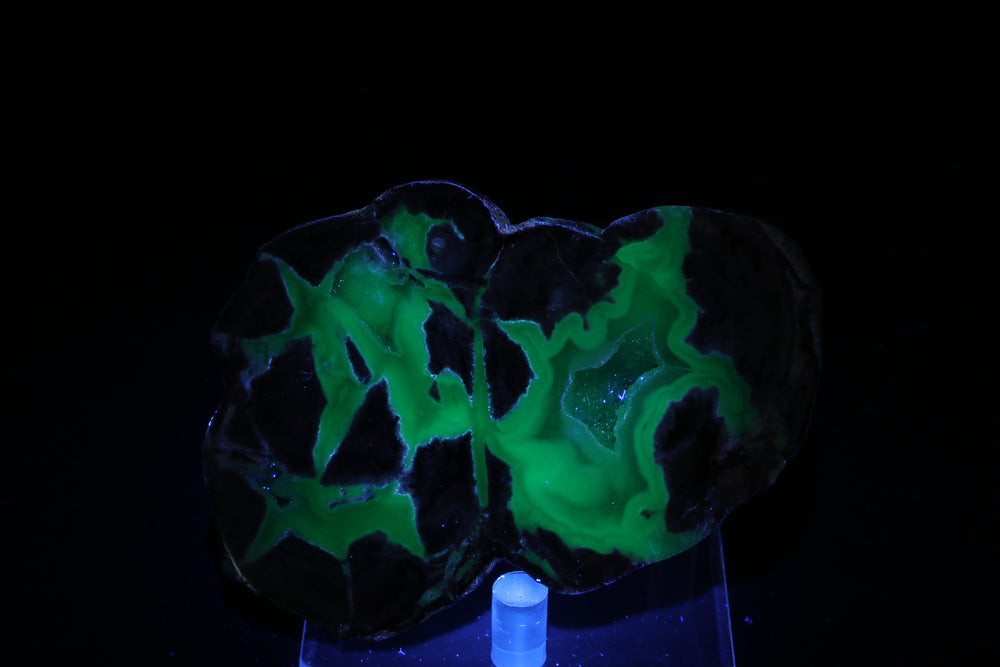Dugway Geode DX246
- Satisfaction Guaranteed
- Worldwide shipping
- 100% Secure Payment
- In stock, ready to ship
- Inventory on the way
Dugway Geode
Approx. Dimensions: 3.5 x 2 x 1.25"
Approx. Weight: 178 grams
Locality: Dugway Geode Beds, Juab County, Utah
Acrylic stand not included
This piece reacts to long wave and short wave ultraviolet light. Short wave is shown in the first photo and long wave in the second. We have two long wave UV flashlights available here.
Approximately 6 to 8 million years ago (Miocene epoch), volcanic activity occurred in western Utah and deposited an extrusive igneous rock called rhyolite. Trapped gasses formed cavities within the rhyolite, and millions of years of ground-water circulation allowed minerals to precipitate into the cavities. The result is geodes with spherical shapes and crystal-lined cavities. Roughly 32,000 to 14,000 thousand years ago, a large body of water known as Lake Bonneville covered most of western Utah. The lake’s wave activity eroded the geode-bearing rhyolite and redeposited the geodes several miles away in the Dugway geode bed area as lake sediments. Most geodes are typically hollow whereas others are completely filled with massive, banded quartz. The most common mineral found within the geodes is quartz in various colors: clear (rock crystal), purple (amethyst), and pink (rose). The fluorescence under UV light is due to trace amounts of uranium in the quartz.
(Source: Utah Geological Survey)
All orders ship within 24-48 business hours. Shipping options and prices are calculated at checkout.
Returns are accepted within 14 days of delivery. Items must be returned in new/unused/undamaged condition to receive a full refund. Please contact us if you need to return an item.




